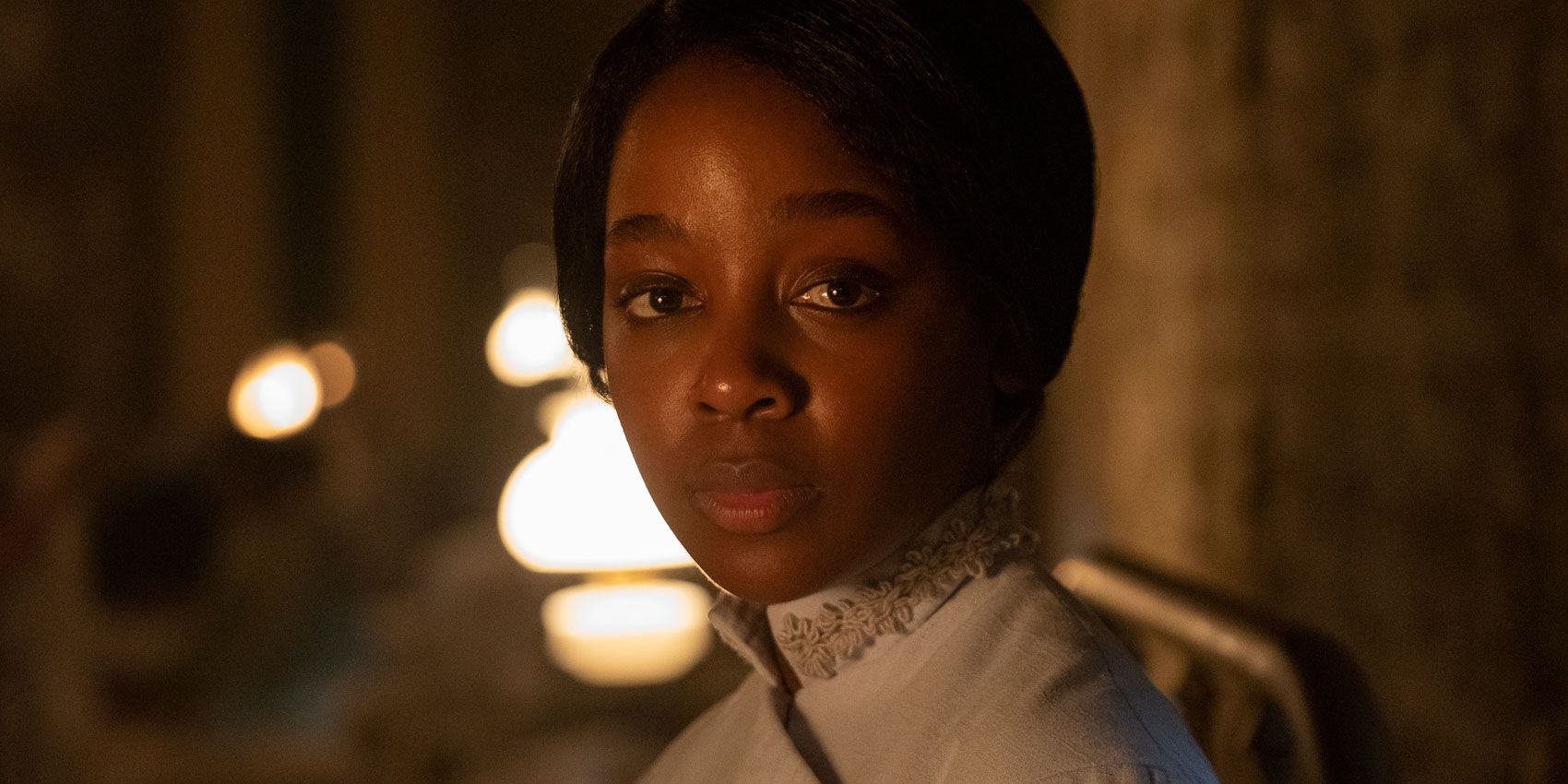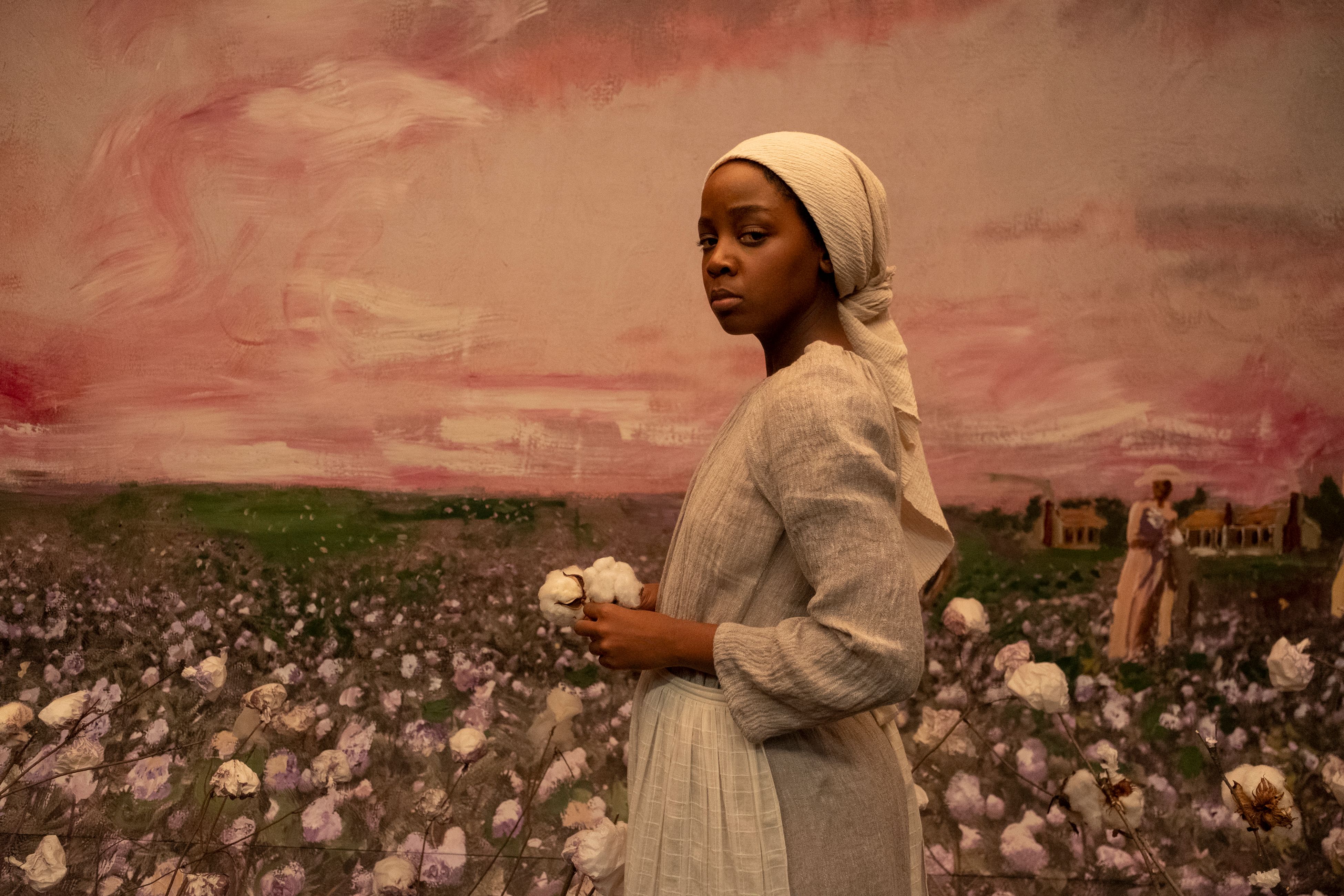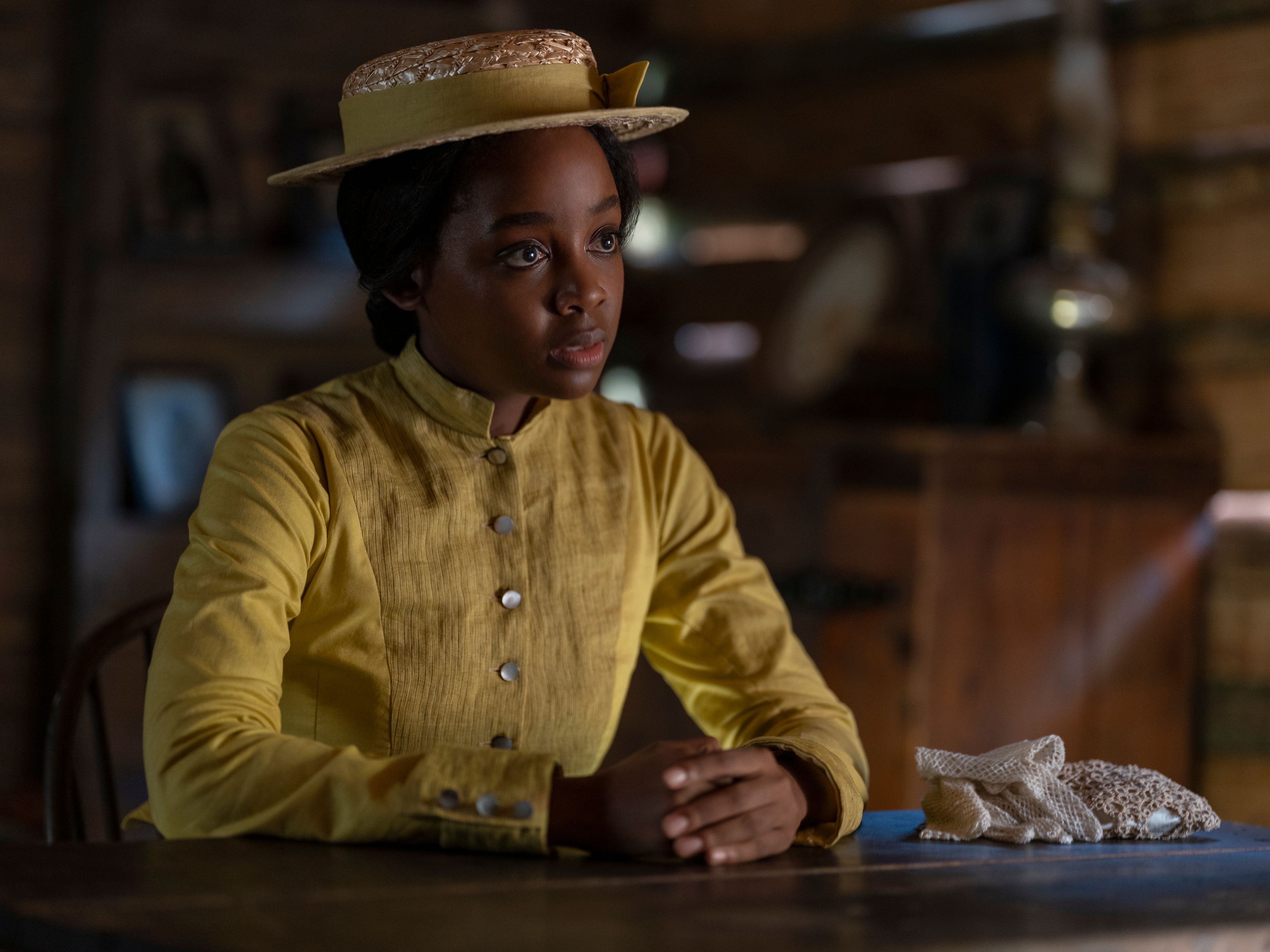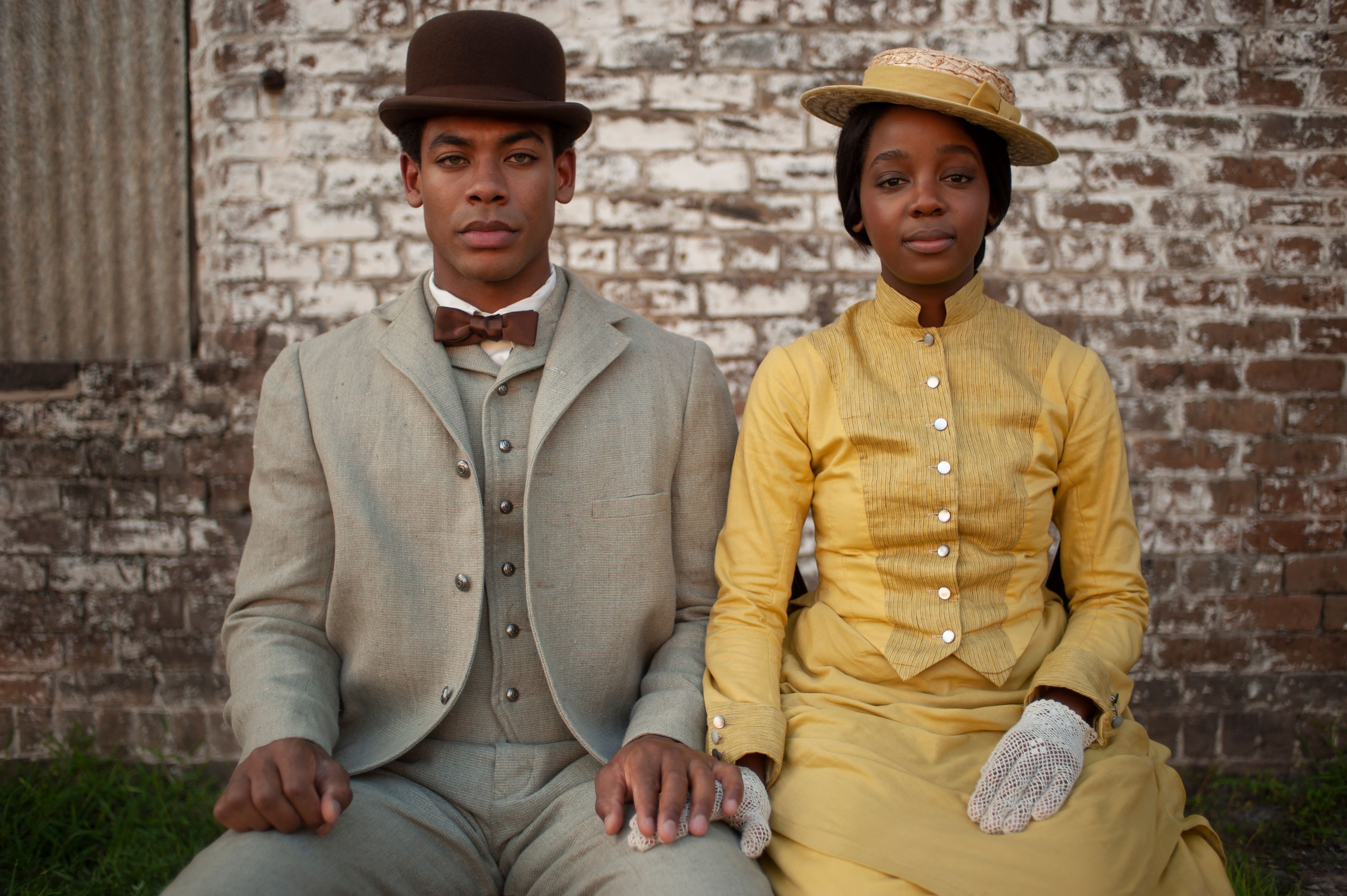Barry Jenkins' series adaptation of The Underground Railroad is a searing 10 episodes of television, filled with commanding imagery and heartbreaking moments. Based on the novel by Colson Whitehead and set in a slightly tweaked version of the slavery-era South, the show focuses largely on the story of a young woman named Cora (Thuso Mbedu) as she struggles her way to freedom.
The show doesn't pull away from showcasing the brutality of this era, but as Mbedu discusses in this one-on-one interview with Collider, one of the most powerful aspects of the show is how it's not hard to draw a direct line from the 1800s to today, as well as a direct line to her own experiences as a South African. Below, she talks about her original audition for the show, working with Jenkins to prepare for the role, why they kept cracking jokes on set, and the ways in which she feels the show is so relevant today.
Collider: I want to start off by asking about what your initial introduction to this project was like.
THUSO MBEDU: It was in November 2018. My manager had sent me the brief for the audition and I was like, "These sides are brilliant." My one concern was I don't have this accent, but I will do my best. I will do my best, and hopefully, at the very worst, Barry and the casting director will think of me in another project later on, down the line.
So did you go into the audition with the accent, or with an attempt at it?
MBEDU: I had my manager organize for me to get one session with a dialect coach. I did my very best, and then I said, "That was awful! But it's okay, this is my first international audition, rejection is a part of it, and I'll be fine."
Once you first got past the audition phase, what were the conversations about everything that would be packed into this role? Because it is such an accomplishment, but also just a lot.
MBEDU: I think Barry prepared me for what to expect during the test shoot phase, because we were in the final audition for a very long time. We only had four scenes because Cora hardly ever speaks, but these are very four important scenes in the story for her, and we did those over and over and over again. And Barry told me that he was trying to test my range to see what it is that I could do, and if I'd be able to sustain such a performance over a period of 10 months. And so mentally, I knew what was expected of me. And so what I wanted to do, going into it, was just to be as prepared as possible, so I did a lot of research going into it. But also with the understanding that anything can happen on set, that Barry is a very collaborative director. So you don't want to go there with preconceived notions, so that when he direct to you, you're unable to move left or right, because this is what you've committed to.
I went in there saying, "I'm going to do my best", but also Barry had this thing where he would constantly and randomly say, "I trust you," which gave me the confidence to play and find Cora at every step of the way.
In terms of getting through the shoot, I've talked to people who've worked on incredibly dark shows who have said that as soon as someone called cut, everyone's laughing and telling jokes. Was that the situation here?
MBEDU: Yes, 100 percent. It really, really was. We even had moments with Joel [Edgerton] where we would be caught by the giggles, because sometimes you get to the point where you're like delirious. But fortunately, we were the type that could be cackling away, and then they go, "Action," and you switch completely. Sometimes, you do get people who want to stay in the character throughout, and you have to respect that, but we were in a space where we understood the weight of the project that we're telling. And I think it sat in a place, for everybody from cast to crew... Because it's still very much unresolved. The story itself, in real life, in real time is still very much unresolved, so that you didn't want to carry that weight when you didn't have to. And we built such a community and a great friendship between all of us, that in between takes, we'd be able to giggle and break away from this darkness without disrespecting the moment, without disrespecting the story, and meeting each other exactly where we needed to be when they called action.
Do you feel like you had a different perspective on this material because you don't happen to be American?
MBEDU: I think so. I think we are formed by our experiences, there's no moving away from that. And coming into the project, I thought I knew and understood what the story of the enslaved people were or the story of slavery was, but I realized that I did not have a clue, because again, what we know is what we have been fed by the media, but the media has shown us things from a very particular lens. So I had to unlearn a couple of things in order to learn the actual truth, but I couldn't completely separate myself from my experience as a South African who is older than her democracy, whose parents, whose grandparents lived under oppression, who inherited that trauma. But then also coming from a place where, just like here in America... Again, our democracy is 25 years old, but we are told today, to get over it, it was a long time ago.
And here in America, they're told the exact same thing, yet you're seeing the reality of what happened 400 years ago. Even today, in 2021, you're seeing white supremacists mistreating people; there are numerous cases. We saw what happened in the Capitol Building in the 6th of January. We're seeing people being lynched, namely, Bobby Charles, who was lynched in New Orleans just last year. How do you tell a group of people to get over it, it happened a long time ago? When families are burying their loved ones every week, because what we call policemen now were actually slave patrollers 400 years ago? So there are lived experiences that I definitely could not separate myself from, but I did a lot of research and a lot of preparation. Barry sent me a lot of material to listen to and to read that helped me make the gap that much smaller.
Something that I always talk about as well is that when I heard the audio tapes of the former enslaved people, they spoken English that is very broken, because the English that they were taught was English for instruction and not English for conversation. And in hearing that, it shifted something in me, because that English is an English that if you went to South Africa today, you'd hear people sound like that. And so it bridged that gap and told me that, this isn't as far removed as you would think it is. It's not necessarily a story about African-Americans, but it's a story about Africans in America.
I am looking forward to people seeing the story, because we had the privilege of telling a very important and moving and powerful story. And again, like I said, I realized that there was a lot that I did not know. And so I am looking forward to being part of a team that teaches people like me. Because we treat each other the way that we treat each other because of lack of empathy and a lack of knowledge. And we're able to dissociate ourselves from other people's experiences. And so with this, for me, it feels like, I will draw in people who have been able to easily remove themselves from such and say, "Mm-mm." You can definitely draw parallels from each episode in underground railroad to situations that are still happening in America today.
And I would hope that after having watched that, that something in you shifts and says, "Something has got to give." And also to the black body that watches it, to feel like, "We're hearing you." For the first time, we're actually hearing you, and we're going to do something about it. And for me personally, when I performed to the role and I went to the journey of Cora, I received healing to wounds that I did not know I had. And so I hope that it will do that for other people as well. So that's what I'm excited about, more than anything.
The Underground Railroad is streaming now on Amazon Prime.




